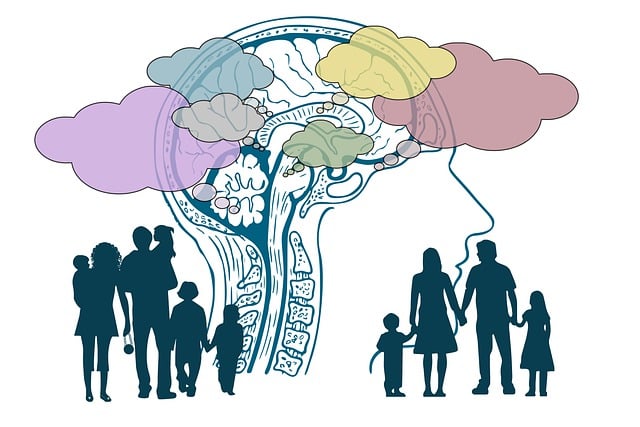Family planning mediation offers a collaborative approach to co-parenting after separation or divorce, addressing custody and visitation challenges. Mediators facilitate open communication, creating customized schedules for both parents while prioritizing child well-being. Virtual sessions enhance accessibility, streamlining holiday arrangements, long-distance parenting frameworks, and flexible schedules tailored to each family's dynamics, ensuring efficient agreements in the best interests of children.
“Parenting plan mediation offers a collaborative approach to navigate complex co-parenting dynamics. This article explores tailored solutions for families, focusing on three key areas: customized schedules, holiday arrangements, and long-distance parenting. By employing mediation, parents can create agreements that accommodate unique needs, ensuring a harmonious transition period. We delve into the process of understanding individualized plans, effective communication strategies, and the ultimate role of mediation in facilitating successful family planning.”
- Understanding Customized Schedules for Co-Parenting
- Navigating Holiday Arrangements: A Mediated Approach
- Long-Distance Parenting: Frameworks and Solutions
- The Role of Mediation in Family Planning
- Tailoring Plans to Meet Individual Family Needs
- Effective Communication: Key to Successful Parenting Agreements
Understanding Customized Schedules for Co-Parenting

Co-parenting after a separation or divorce can be a complex process, especially when deciding on child custody and visitation schedules. This is where family planning mediation steps in as a valuable resource for parents seeking tailored solutions. Through mediation, parents engage in open communication to create customized schedules that consider each parent’s needs and the well-being of their children.
The role of a mediator is to facilitate this negotiation process, offering an unbiased perspective. They help navigate the challenges of co-parenting, especially when distances are involved or unique family dynamics need to be accommodated. Virtual negotiation support through online custody mediation sessions can make this collaborative approach even more accessible, ensuring parents can find common ground regardless of their locations. This method streamlines the creation of long-distance parenting frameworks, holiday arrangements, and flexible schedules that work best for every family.
Navigating Holiday Arrangements: A Mediated Approach

Navigating holiday arrangements can be a stressful aspect of separation or divorce for many families. With children at the heart of this process, it’s essential to create an environment where their needs and best interests are considered first. Family planning mediation offers a unique opportunity for parents to collaborate and find solutions tailored to their specific circumstances. Through this mediated approach, they can jointly decide on schedules and arrangements that ensure consistent and quality time with both parents during holidays.
This process involves open communication and virtual negotiation support, enabling parents to overcome challenges related to long-distance parenting or differing opinions on holiday plans. Online custody mediation provides a flexible platform for these discussions, allowing families to reach agreements that may not have been possible through traditional legal avenues. By involving a neutral mediator, parents can focus on what’s best for their children while also maintaining a civil and respectful relationship.
Long-Distance Parenting: Frameworks and Solutions

Long-distance parenting presents unique challenges for families, especially when it comes to establishing effective communication and co-parenting structures. This is where family planning mediation steps in as a valuable resource. The process involves creating tailored frameworks that cater to the specific needs of each family, ensuring smooth transitions between parents’ homes, particularly during important milestones like holidays and school breaks.
Through virtual negotiation support, parents can collaborate on crafting schedules that work best for everyone involved. Online custody mediation platforms offer a convenient and secure way to facilitate discussions and make decisions regarding parenting plans. These digital tools enable families to stay connected, ensuring their children maintain consistent routines and relationships despite the distance. By leveraging technology, such as internet divorce meetings, couples can efficiently navigate complex arrangements, fostering a cooperative environment for long-distance co-parenting.
The Role of Mediation in Family Planning

Family planning mediation plays a pivotal role in helping separated or divorcing parents navigate complex arrangements for their children’s future. In today’s digital age, traditional in-person meetings may not always be feasible due to geographical constraints or personal circumstances. This is where online platforms step in, offering flexible solutions through remote session divorce and internet divorce meetings. These innovative approaches allow families to participate in custody mediation from the comfort of their homes, ensuring accessibility and convenience.
By leveraging technology, family planning mediation facilitates the creation of customized schedules and holiday arrangements that cater to unique familial needs. It enables long-distance parenting frameworks, fostering co-parenting relationships regardless of physical distances. This modern approach streamlines the process, making it more efficient and effective in helping parents reach agreements that prioritize their children’s best interests.
Tailoring Plans to Meet Individual Family Needs

In the realm of family planning mediation, a key strength lies in its ability to craft solutions that are uniquely tailored to each family’s dynamic. Unlike one-size-fits-all approaches, these mediations recognise and accommodate the distinct needs and preferences of every individual involved. Whether navigating complex schedules, determining holiday visits, or establishing guidelines for long-distance parenting, mediators facilitate an open dialogue where parents can express their desires and concerns openly.
This collaborative process involves exploring creative options, considering children’s best interests, and incorporating unique family circumstances. By employing internet divorce meetings, remote session divorce, or online custody mediation, parents can engage in these discussions from the comfort of their homes, ensuring accessibility and convenience while still achieving highly personalised outcomes.
Effective Communication: Key to Successful Parenting Agreements

Effective communication is a cornerstone of successful family planning mediation. When parents are able to openly and honestly discuss their needs, desires, and concerns, they can navigate complex issues such as custody arrangements, holiday schedules, and long-distance parenting in a more constructive manner. This often involves active listening, clear articulation of goals, and a willingness to compromise.
Mediation provides a safe and structured environment for these conversations to take place, allowing parents to focus on what’s best for their children rather than getting mired in conflict. Online custody mediation or virtual negotiation support through internet divorce meetings can further enhance accessibility, ensuring that families can resolve parenting agreements regardless of geographical constraints. Effective communication fostered through these processes leads to customized schedules and arrangements tailored to each family’s unique situation.
